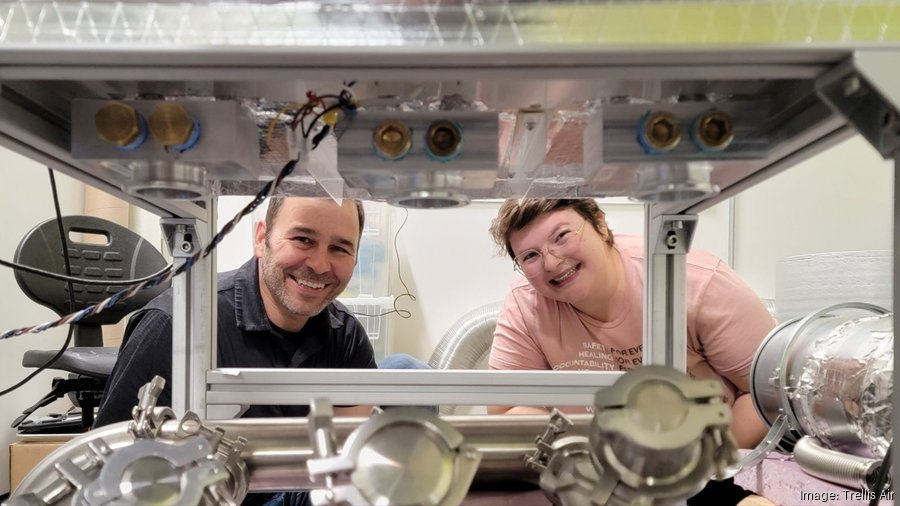The Harvard research funding crisis has emerged as a pressing issue, following the recent halt to millions of dollars in grants due to tensions with the Trump administration. This disruption stems from a controversial stop-work order that immediately impacted crucial organ-on-a-chip projects at Harvard’s Wyss Institute. With over $19 million in funding at stake, countless researchers are now left in a state of uncertainty about their future work and institutions. As Harvard’s leadership responds to this crisis, a lawsuit has been filed to challenge the legality of the funding freeze, showcasing the profound implications for academic research funding across the nation. Without immediate resolution, projects that form the backbone of American innovation might experience irreversible setbacks.
The current predicament facing Harvard University can be described as a critical funding dilemma that threatens to unravel groundbreaking scientific initiatives. This funding standstill has caused a stop to vital research endeavors that utilize innovative organ-on-a-chip technology, essential for studying various health impacts and space travel effects. At the heart of this situation are not just financial resources but the talented minds behind these projects, who now grapple with an uncertain academic landscape. In light of intensified scrutiny from federal entities, the university has sought legal recourse to reverse any unconstitutional decisions that hinder academic progress. The broader implications of this crisis extend beyond Harvard, potentially reshaping the landscape of academic research funding nationwide.
Understanding the Harvard Research Funding Crisis
The Harvard research funding crisis represents a significant challenge not only for the institution but for the broader academic community. Following the Trump administration’s controversial demands, which ultimately led to a stop-work order affecting critical projects, Harvard faced an unprecedented freeze on approximately $2.2 billion in research funding. This decision has immediately impacted many prominent researchers, including Don Ingber of the Wyss Institute, who saw crucial organ-on-a-chip projects at risk, jeopardizing both scientific advancement and the livelihoods of numerous faculty members and students.
The implications of this crisis extend beyond financial uncertainties. The lawsuits filed by Harvard against the administration emphasize a larger fight over academic freedom, governance, and integrity in research funding. With federal agencies bearing down on academic practices, institutions are left grappling with how to maintain their innovative edge while navigating political pressures. Thus, understanding the nuances of the Harvard research funding crisis is critical for stakeholders in academia, the government, and industry.
Impact of the Stop-Work Order on Academic Research
The application of a stop-work order on key research projects at Harvard has been a wake-up call regarding the stability of academic research funding in America. Projects that previously harnessed millions in government grant money are now halted, leaving researchers like Don Ingber scrambling to reassess their commitments and the impact on graduate students and postdoctoral fellows. These decisions are often emotionally charged, as they affect not only funding but the careers and educational trajectories of young scientists dedicated to groundbreaking work in health and technology.
Moreover, the halt in research activities raises alarms about the future of American innovation. Organ-on-a-chip technologies, such as those developed by Ingber, are at the forefront of biomedical research, and disruptions like these could hinder advancements that directly affect public health and safety. The lack of funding combined with stop-work orders signals a potential downturn in the U.S. research landscape, prompting concerns about maintaining competitiveness on a global scale.
The Role of Organ-on-a-Chip Technology in Modern Research
Organ-on-a-chip technology is a revolutionary approach in biomedical research, bridging the gap between traditional laboratory techniques and real-world applications. With the capacity to model human organs and predict responses to drugs or environmental stressors, this technology is vital for advancing our understanding of complex biological processes. At Harvard, projects led by scientists like Don Ingber are leveraging this technology to study the effects of radiation and microgravity on human health, particularly in light of upcoming missions to Mars.
The implications of this research are profound, particularly as global interest in space exploration escalates. Understanding how human biology reacts to extreme conditions is essential not only for future astronauts but also for developing medical therapies for conditions that involve radiation exposure, such as cancer treatment. Thus, the potential loss of research continuity due to the funding crisis is concerning, as it threatens to undermine vital innovations that could enhance both space exploration and healthcare.
Navigating Academic Funding Challenges Amid Political Changes
The intersection of politics and academic research funding has become increasingly contentious, particularly in the wake of actions taken by the Trump administration. As federal funding faces scrutiny and possible cuts, universities like Harvard are placed at the forefront of this conflict, forced to defend their autonomy and operational practices. The implications of these changes are significant, as they could reshape how research is conducted, necessitating adaptability and resilience from researchers across all disciplines.
In light of recent events, academia must consider new strategies to secure funding and maintain the momentum of scientific progress. This includes identifying alternative funding sources, fostering partnerships with private industry, and advocating for supportive policies that uphold the importance of research in driving innovation. Furthermore, the legal battles contracting around these funding measures highlight the urgent need for dialogue between academia and government to ensure that funding practices reflect the values of scientific integrity and societal benefit.
The Importance of Academic Freedom in Research Initiatives
Academic freedom has long been a cornerstone of innovative research, allowing scholars to pursue inquiries based on curiosity rather than external pressure. As the Harvard lawsuit against the Trump administration illustrates, preserving this freedom is essential in maintaining the integrity and progress of research. When governmental demands begin to dictate research directions and priorities, it creates an environment of fear and uncertainty that stifles creativity and exploration.
The present climate suggests that researchers may hesitate to pursue projects perceived as controversial or outside the conventional wisdom due to fear of political repercussions. This could lead to a reduction in the diversity of research topics explored, undermining the innovative spirit that has historically driven American science and technology. Upholding academic freedom is thereby critical not only for the researchers at Harvard but for the entire academic community, ensuring a space where inquiry thrives uninterrupted by political influence.
Responding to Future Uncertainties in Research Funding
In the wake of funding crises, institutions must develop robust contingency plans to prepare for future uncertainties. Harvard’s leadership and research community are currently challenged to recalibrate their strategies in response to immediate funding challenges posed by the stop-work order. The prioritization of internal resource allocation and the shuffling of personnel among different projects are steps being taken to mitigate the impact of funding discrepancies.
Furthermore, cultivating a culture of resilience and adaptation within research teams will be crucial in navigating the ever-changing landscape of academic funding. Scientists must be equipped with the skills to seek alternative funding avenues, whether through grants, partnerships with industry, or innovative fundraising efforts. Empowering researchers to generate diversified funding streams could safeguard vital research initiatives against future setbacks.
The Intersection of Innovation and Regulation in Research
The tension between innovation and regulation has come to the forefront of the ongoing research funding crisis at Harvard. While institutions strive to push the boundaries of science and technology through innovative projects, they often find themselves grappled by regulatory measures and political demands that could hinder progress. This conflict raises important questions about how best to navigate the necessary oversights without stifling creativity and scientific exploration.
For projects such as Ingber’s organ-on-a-chip technology, the need for regulatory compliance must be balanced with an environment conducive to breakthrough advancements. As regulations evolve, research institutions must advocate for frameworks that protect public interests while allowing for scientific curiosity to flourish. Finding this equilibrium is critical for maintaining America’s competitive edge in research and innovation on a global stage.
The Broader Implications of the Harvard Lawsuit
The lawsuit filed by Harvard against the Trump administration opens a dialogue regarding the larger implications of government involvement in academia. As federal funding remains a crucial pillar supporting scientific research, this case highlights the urgent need to clarify the roles and responsibilities of both academic institutions and governmental bodies in fostering a robust research environment. The outcome of this lawsuit may set important precedents for how universities can operate autonomously while still pursuing public funding.
Moreover, the implications may resonate beyond Harvard, serving as a litmus test for other academic institutions facing similar pressures. The outcome could influence future funding structures and accountability measures that govern how federal funds are allocated and administered. As academia battles these regulatory challenges, there remains a pressing need for cohesive strategies that support scientific inquiry and uphold the values of collaboration between government and educational institutions.
Facing Fear and Uncertainty: The State of Scientific Employment
The landscape of academic employment is in peril amid the current funding crisis, with researchers feeling increasingly anxious about job stability. The uncertainty stemming from the Harvard stop-work order has ushered in a climate of fear as promising scientists weigh their options amid potential layoffs and funding cuts. Those who have relocated to pursue opportunities in American research institutions face difficult choices, with many opting to decline job offers or seek opportunities abroad amid concerns about job security and personal safety.
This trend poses a significant risk to America’s scientific workforce, which thrives on attracting global talent. As international collaboration and diversity have traditionally fueled innovation, the present instability may discourage the best and brightest from pursuing careers in U.S. academia. Ensuring stable employment and fostering inclusive environments will be essential for preserving the nation’s status as a leader in scientific research.
Frequently Asked Questions
What is the Harvard research funding crisis and its implications for research projects?
The Harvard research funding crisis refers to the significant loss of approximately $2.2 billion in academic research funding following the Trump administration’s demands for changes in governance and oversight. This crisis has resulted in stop-work orders affecting critical projects, including organ-on-a-chip initiatives, which jeopardizes ongoing research, student involvement, and the future of various innovative scientific endeavors.
How has the stop-work order impacted Harvard’s organ-on-a-chip projects?
The stop-work order issued during the Harvard research funding crisis specifically targeted two organ-on-a-chip projects with over $19 million in contracts. This halt in funding led to immediate work stoppages, threatening the continuity of significant research and the academic progress of students and postdocs involved in these projects.
What were the demands from the Trump administration that led to the Harvard lawsuit?
The Trump administration demanded changes in Harvard’s governance, hiring practices, and admissions, alongside requiring audits of student and faculty opinions. In response to these demands, Harvard filed a lawsuit, arguing that they constituted an illegal overreach and sought the restoration of crucial academic research funding.
What actions has Harvard taken to address the research funding crisis?
In light of the research funding crisis, Harvard has initiated legal action against the Trump administration while simultaneously exploring internal funding solutions to retain researchers and mitigate the impacts of halted projects. This includes finding alternative roles within other grants for affected personnel.
What role does academic research funding play in America’s innovation economy?
Academic research funding, exemplified through programs at Harvard, is the backbone of America’s innovation economy. It fosters technological advancements and scientific discoveries that drive industries and contribute to everyday life, ranging from healthcare to consumer electronics. The ongoing crisis threatens this vital relationship between government and academia.
How is the current research funding climate affecting international scientists considering positions at Harvard?
The uncertainty surrounding the Harvard research funding crisis has caused international scientists to reconsider accepting positions at the university. Concerns about job stability and potential safety issues in the U.S. have led some researchers to rescind job offers, jeopardizing Harvard’s ability to attract top global talent.
What are the significant research projects affected by the Harvard funding crisis?
Two noteworthy organ-on-a-chip projects are significantly affected by the funding crisis: one focuses on modeling radiation damage to human organs important for understanding nuclear accident scenarios, and the other investigates the impacts of microgravity and radiation on astronauts’ health during potential missions to Mars.
What strategies are researchers employing to cope with the Harvard research funding crisis?
In response to the funding crisis, researchers are prioritizing the protection of their teams by reallocating individuals to other grants, finding internal funding to continue critical work, and remaining adaptable to rapidly changing circumstances. They are also actively engaging in discussions with university leaders to navigate the ongoing challenges.
What potential outcomes are researchers anticipating amidst the legal disputes with the Trump administration?
Researchers at Harvard are hopeful that the ongoing lawsuit against the Trump administration may lead to a swift resolution to the research funding crisis, allowing projects to resume. However, there remains uncertainty, prompting them to prepare for all possible outcomes to safeguard their research efforts and team members.
What can we expect for the future of academic research funding based on the Harvard crisis?
The Harvard research funding crisis highlights a precarious situation for academic research funding in the U.S., raising concerns about the future of innovative projects. As the relationship between academia and government evolves, ongoing legal battles and policy changes may significantly shape the funding landscape for researchers across the nation.
| Key Points | Details |
|---|---|
| Stop-Work Order | Harvard rejected Trump’s demands and received a stop-work order affecting key research projects, freezing approximately $2.2 billion in funding. |
| Impacted Projects | The order primarily targets two organ-on-a-chip projects led by Don Ingber at the Wyss Institute, which are crucial for biomedical research. |
| Legal Action | Harvard has filed a lawsuit against the federal government to challenge the legality of the funding cuts and demands imposed by the Trump administration. |
| Impact on Researchers | Uncertainty surrounds the future of researchers and students involved in the affected projects, leading to potential layoffs and need for reassignment. |
| Technological Significance | The research projects are vital for understanding radiation effects on human health and developing technologies for space travel and nuclear safety. |
| Investor Concerns | The current crisis has caused anxiety among foreign scientists about relocating to the U.S., impacting talent acquisition for American research. |
Summary
The Harvard research funding crisis has emerged as a pivotal moment for American innovation, illustrating the detrimental effects of political decisions on critical scientific endeavors. Following the rejection of governmental demands, Harvard faced a significant funding freeze, which has forced researchers to halt vital projects, jeopardizing years of work and the stability of talented personnel. As the university navigates this legal and financial turmoil, it highlights the essential partnership between government support and academic research that has historically fueled advancements in technology and science. This crisis not only threatens Harvard’s reputation as a research leader but may also influence the future career choices of emerging scientists, thus impacting the broader landscape of American innovation.








